Working hours
Mon - Fri: 8am to 5pm
Mon - Fri: 8am to 5pm
Share
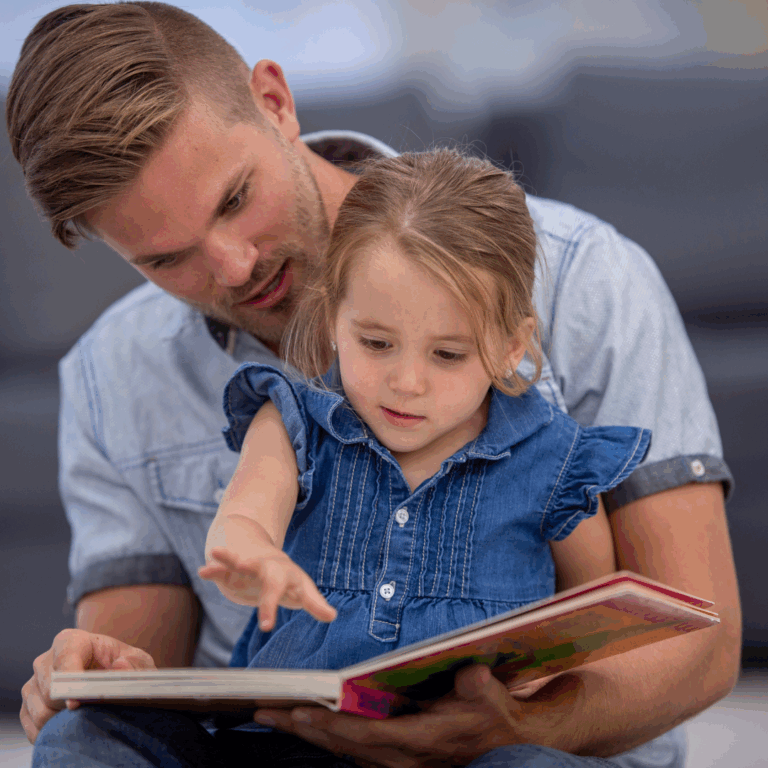
At Mini Minds Matter, our personal mission is to develop children’s emotional intelligence to promote a healthy relationship to emotions. These skills are impactful alone, but become even more useful during times of transitions and uncertainty.
Starting school can feel daunting for children – and they are not alone! It is intimidating to enter new spaces, to start a new job or meet new people for adults alone, so we can completely sympathise with our children as they navigate this new chapter in their lives.
For them, it’s not just about learning new things academically, but also about learning how to navigate social dynamics, deal with emotions, and become more independent in a new environment. It is a big milestone in their life, and preparing them will ensure both parent and child feel confident when transitioning to a different environment.
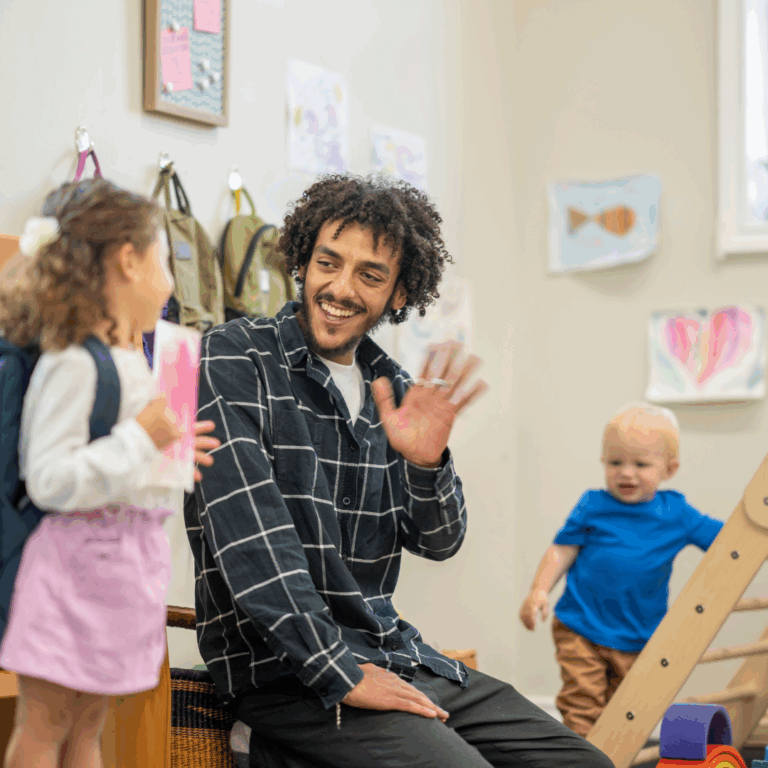
Using affirmations and connecting this to daily feelings and events is a great way to develop a strong sense of self within children, whilst encouraging positive neural connections.
Affirmations become especially powerful when introduced in early childhood, a time when they are developing rapidly – not just physically, but emotionally and cognitively as well.
Their minds are like sponges, absorbing language, behaviours, and emotional cues from the people around them.
The words we use, both about them and in front of them, play a significant role in shaping their inner voice.
This is crucial to know when a child comes to prepare for school.
The way we speak about their experience, and how we relate to their feelings, become an integral part to children’s preparedness for school.
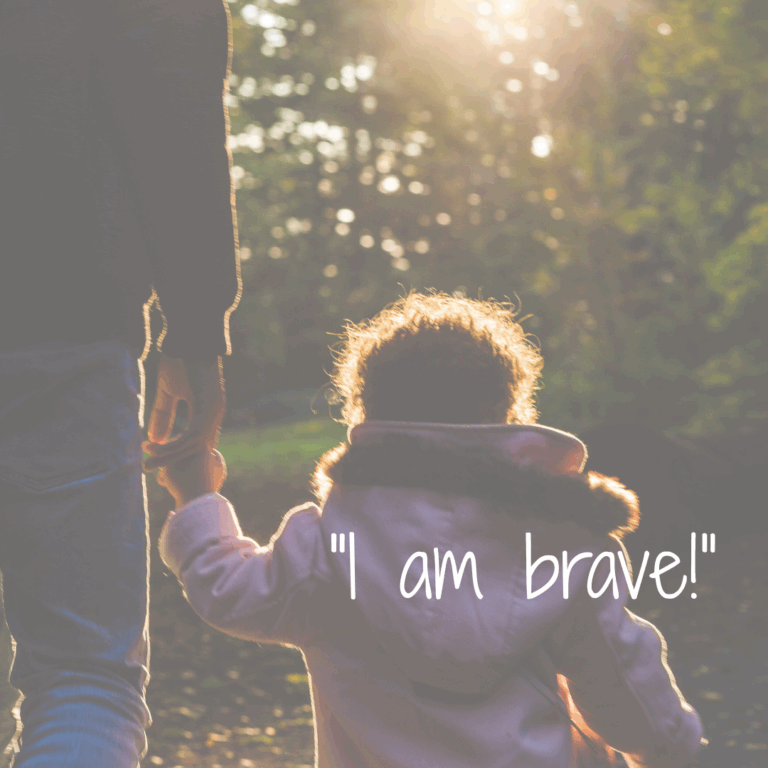
Therefore, if we consistently model and encourage positive language, such as affirmations like “I am brave” or “It’s okay to ask for help,” children will begin to internalise this as an emotional cue and use these when they need it.
These early messages have a lasting impact, helping them to build a resilient mindset and a strong, compassionate relationship with themselves.
At the start of their school journey, children will encounter new and unfamiliar situations such as speaking in front of the class, or learning something challenging. In moments of fear or self-doubt, reinforcing the phrase ‘I am brave’ and ‘I can do anything’ can give your child a tool to lean on during these experiences.
Throughout the week, reaffirm this affirmation when you notice your child being brave, and narrate the situations where you want them to use the language ‘I am brave.’ This could be saying this aloud in the morning, or when you see them feeling nervous.
You could also create a special reminder together, for example a post it note with ‘I am brave’ on their desk or inside their schoolbag, to give them a physical reminder of their inner strength.
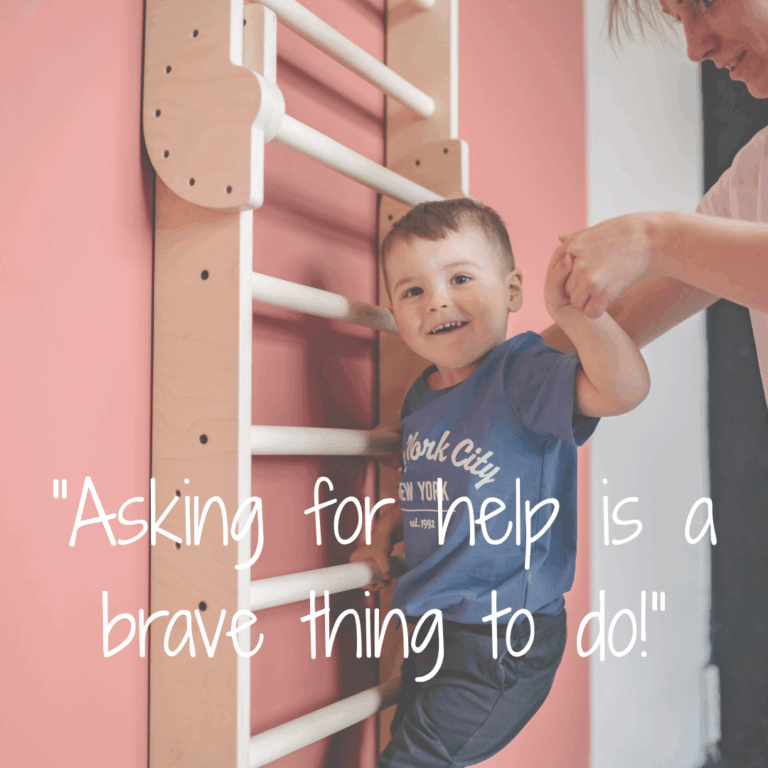
It is normal for a child to feel afraid of looking silly in front of their class mates, or feel confused around how they should act/do.
By teaching them that asking for help is brave, this can empower children to handle situations where they feel confused. Children who are comfortable seeking assistance, whether from a teacher or a friend, are more likely to feel supported, valued, and understood and this is essential to ensuring that children have a positive transition from nursery to school.
It also teaches them that they don’t have to do everything on their own, which can feel daunting for young children.
You can reinforce this by praising them when they ask for help, whether it’s in schoolwork or a personal challenge.
You can say things like, “I’m proud of you for asking for help today. That’s a brave thing to do!”, allowing them to use their communication as a positive action rather than something to avoid..
Affirmations really come to life when used alongside role play, as it offers a safe, imaginative space where children can express their feelings, and practice social and emotional skills in a way that feels natural and engaging.
In these playful moments, children aren’t just repeating words: they’re embodying them.
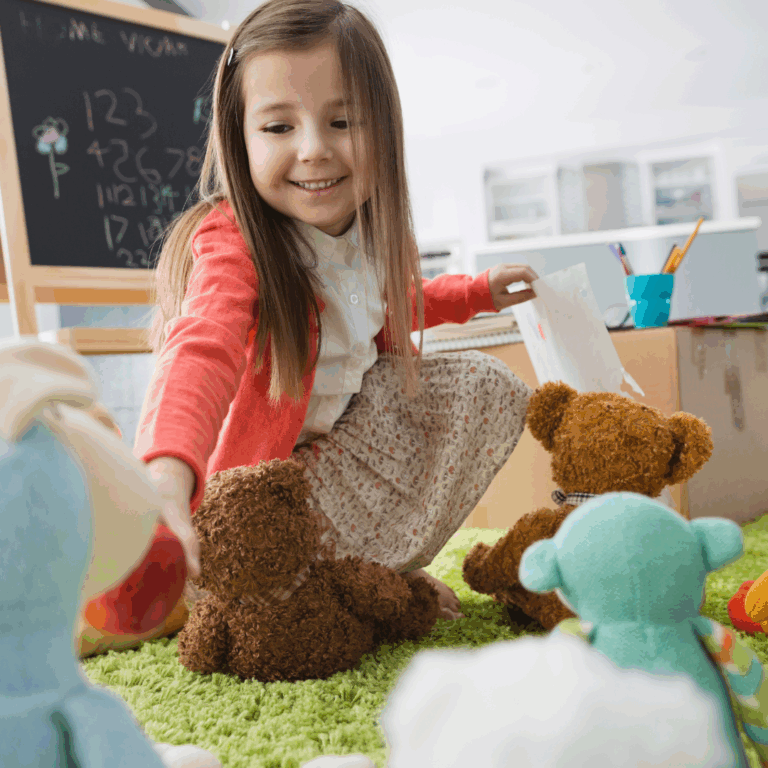
Through role play, children can act out situations they might find challenging when transitioning to a new school.
This could be worry about asking a teacher for help, joining a new group of friends, or even the journey to school.
As they pretend and role play, they can use their affirmations such as ‘I am brave,’ ‘I can do hard things,’ ‘I am strong’ or ‘It’s okay to make mistakes.’ This helps them connect the words to real emotions and experiences, whilst in a safe and pressure-free environment allowing them to experiment with new responses and perspectives..
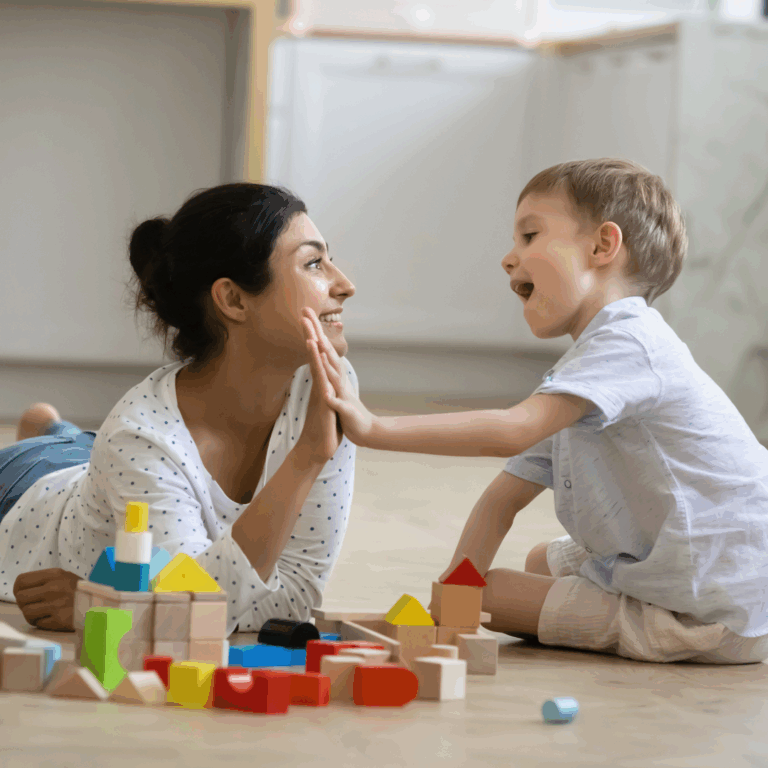
As children learn through stories and play, this is one of the most important features of preparing your child for school.
A fantastic way, other than play-acting with your child, is to read stories with a character going through a similar transition, or play a game with the children pretending they are at their first day of school.
Use positive language and body language whilst modelling how school may look, and allow them to lead the play.
Ask questions such as ‘Ooh, I hear a bell ringing! I wonder why the bell would ring?’, and allow them to explore answers to this.
Incorporating routines like hanging up a backpack, having snack time, or playing at playtime during the role play, helps the child to feel more comfortable and confident about school.
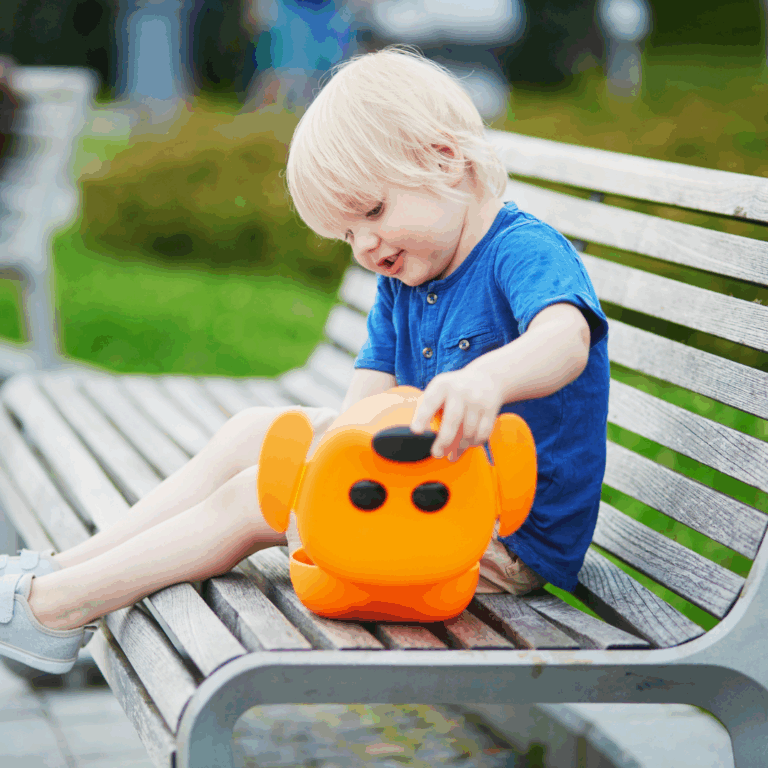
Ensure that affirmations are incorporated into the play to solidate the language you want them to use, allowing the child to role play using their affirmations.
For example, if your child is sensitive to loud noises and you know they use loud bells at school, this could be role played alongside the sound of the bell.
For example, ‘the bell sounds loud but I know I am brave, and I can put my hands over my ears to help me.’
Using these to prepare your child for their school day will ensure they feel empowered to walk through those school doors confidently and happily!
Lastly, once your child feels emotionally ready for school it is important to show them what will be expected of them.
Be reassured, there will always be a member of the teaching staff to help them, whether that be with their learning, putting on their coat or helping them open a food wrapper! However, it’s really advantageous if children can already do certain things by themselves.
This not only provides children with a sense of self-belief that they are able to do things, it often encourages them to want to be more independent with lots of other things too.
It really is a key building block to ensuring your child is both physically and emotionally ready for school.
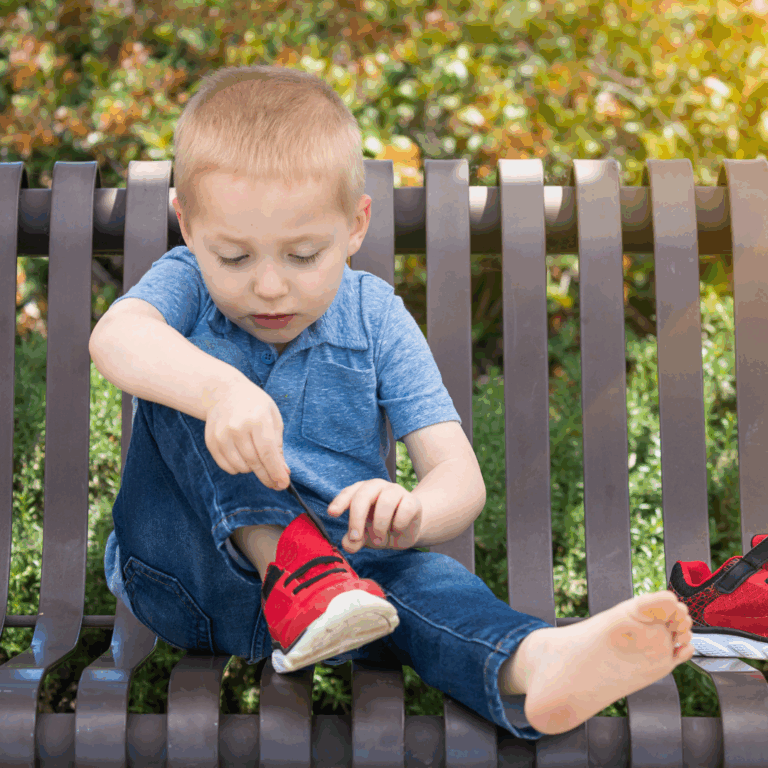
When at school, children may be required to change their clothes and it is helpful if they can manage this with limited help.
Tying shoes can be particularly tricky for children so spend lots of time practising.
Remember to use your affirmation ‘I can do anything!’ when trying new skills! You can also use alternatives, such as slip-ons or Velcro fastenings when time is limited.
A simple way to support your child in putting their shoes on could be to daw a picture in their shoes like a smiley face with half in the left one and half in the right so that they can identify which shoe goes on which foot.
Furthermore, children will have access to an outdoor area throughout the day. They will need to put their coat on in colder weather or remove their jumper when it gets warmer – being able to do this independently means that they aren’t waiting on an adult to help and can get outside and play.
Again, practising doing this and more importantly, making this fun for the children is essential to creating positive feelings towards school.
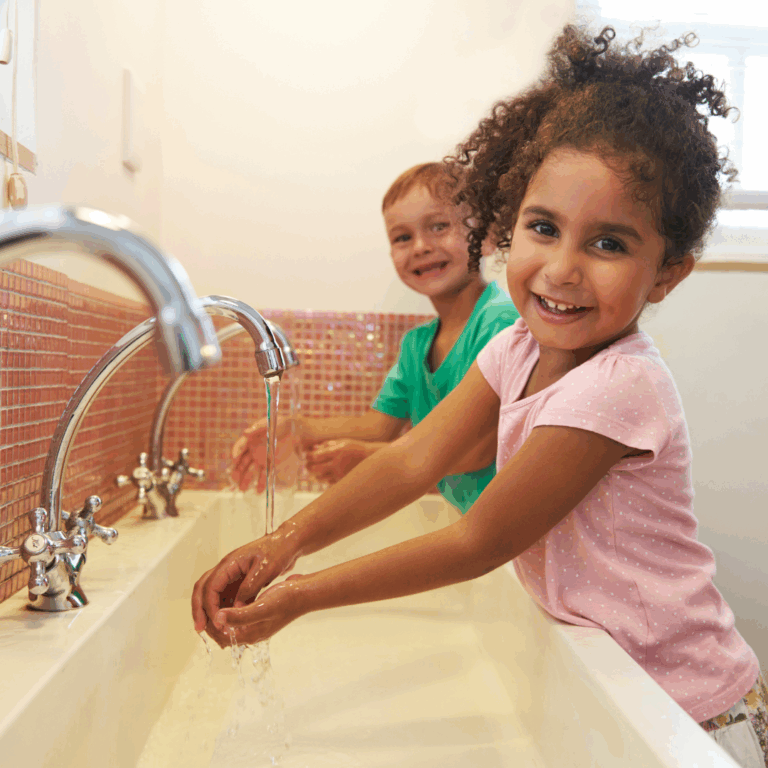
Using the toilet independently at school is very important, including washing and drying hands afterwards. Blowing their own nose and putting any used tissue in the bin is also another habit for your child to build before school.
Use affirmations such as ‘I am healthy’, ‘I can look after myself well’, to encourage this behaviour. And remember to compliment them when you see them doing this independently!
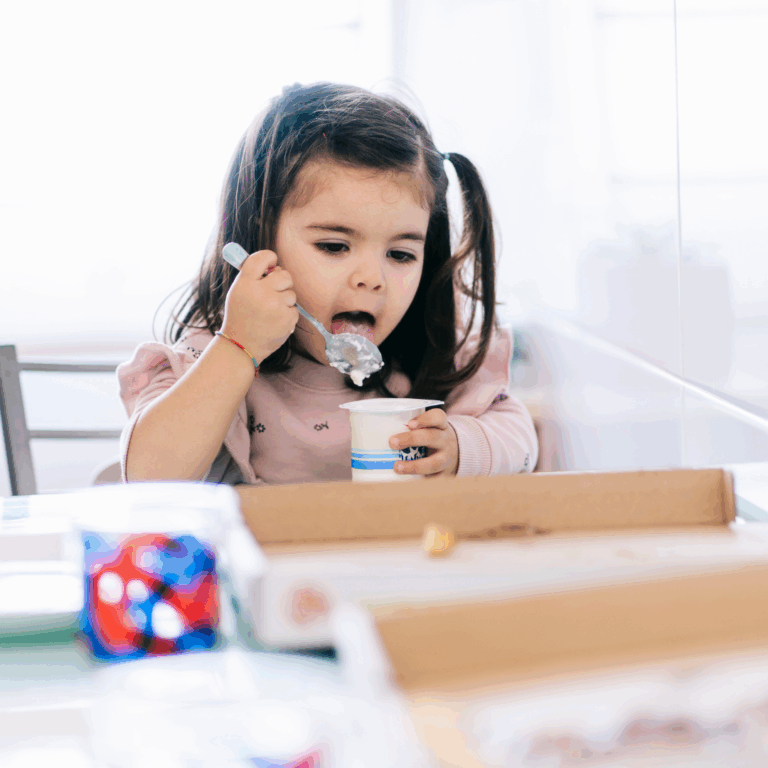
Mealtimes can be tricky, especially if your child finds it hard to use a knife to cut up their own food.
Spend time practising cutting food as well as learning to use an age-appropriate knife, fork and spoon properly.
Allow your child to open their own food packets and practise peeling fruits like satsumas and bananas to give your child more confidence and independence.
Again, affirmations compliment this well and providing time to learn these skills will really ensure your child is confident on their arrival to school.
Helping your child prepare for school goes beyond learning letters and numbers—it’s about nurturing their independence, building self-confidence, and ensuring they feel emotionally ready for this big transition. One simple yet incredibly powerful tip we’d love to share is this:
Let your child overhear you saying something positive about them and their readiness for school. This small but clever strategy can sky-rocket their confidence. The secret? Don’t let them know you meant for them to hear it!
For example, say something like: “Wow, [child’s name] is starting school soon, and I’m just so proud of how confident and independent they’ve become. They’ve been trying so hard and seem so grown up lately—I can really see how ready they are!”
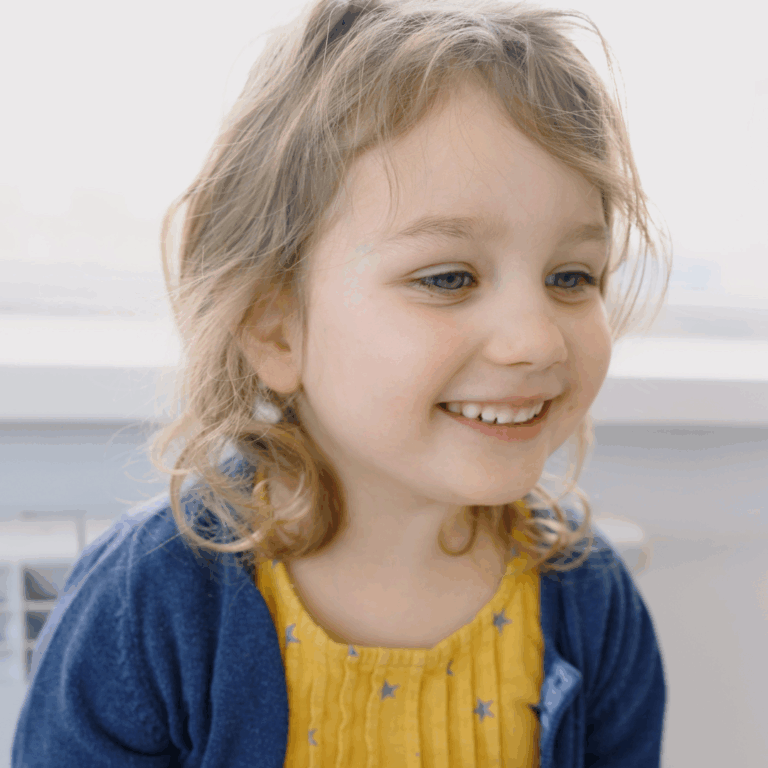
Because this message is overheard rather than said directly, it often has a more powerful effect.
It bypasses the pressure children sometimes feel when being spoken to directly, and instead works as a little confidence-boosting message to their brain that feels deeply true and internal.
These small moments of emotional encouragement and belief in your child can have a big impact. They help shape how your child sees themselves and the world they’re stepping into.
Yes, starting school can feel scary—but with your support, reassurance, and these gentle strategies, it can also be a truly positive and empowering experience for both of you.
Mini Minds Matters UK is a daily dinosaur-themed approach that supports the mental health and wellbeing of children. It incorporates mindfulness, affirmations, meditations and encourages a growth mindset.

With the ever-changing regulations and guidance, sign up to our monthly newsletter and mailings to stay current and keep up to date with running your childcare setting.
Simply enter your details below to join our mailing list.
By completing this form you are agreeing to our privacy policy You can unsubscribe at any time
